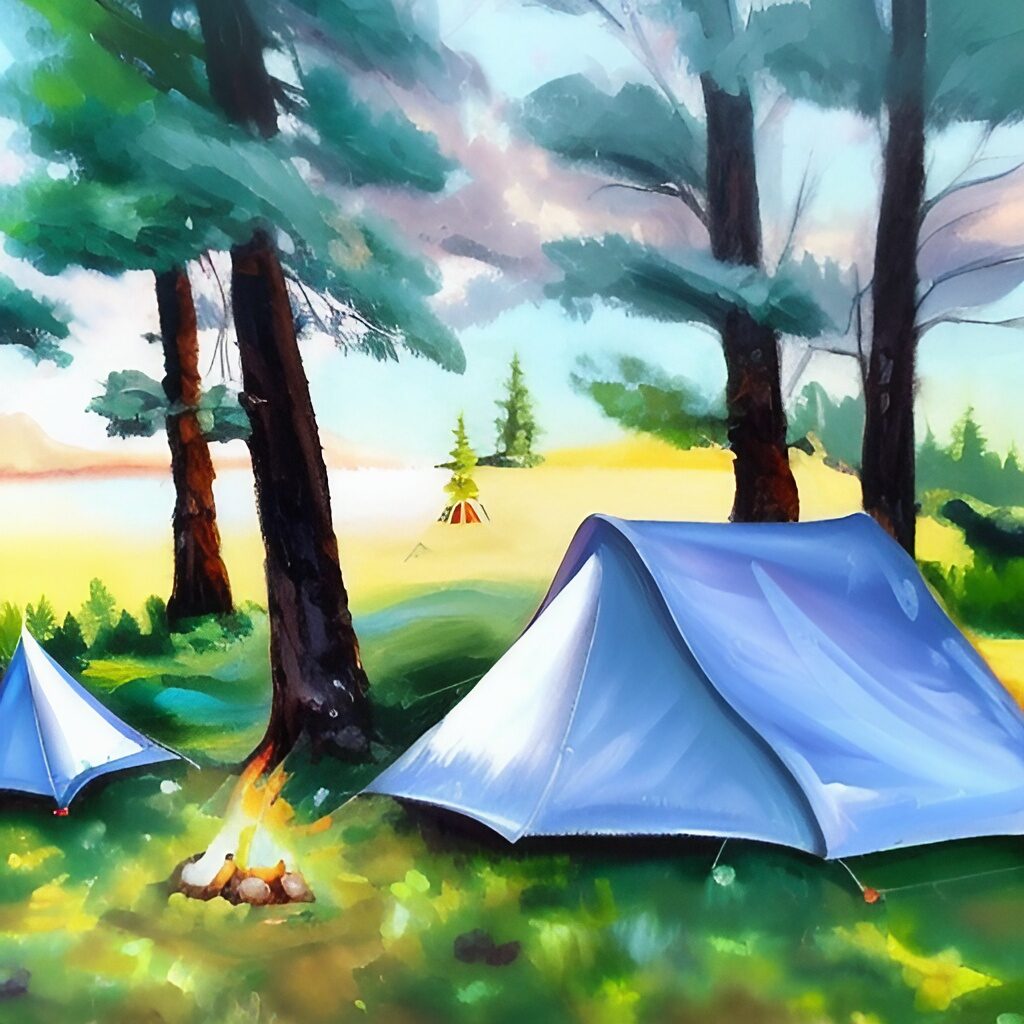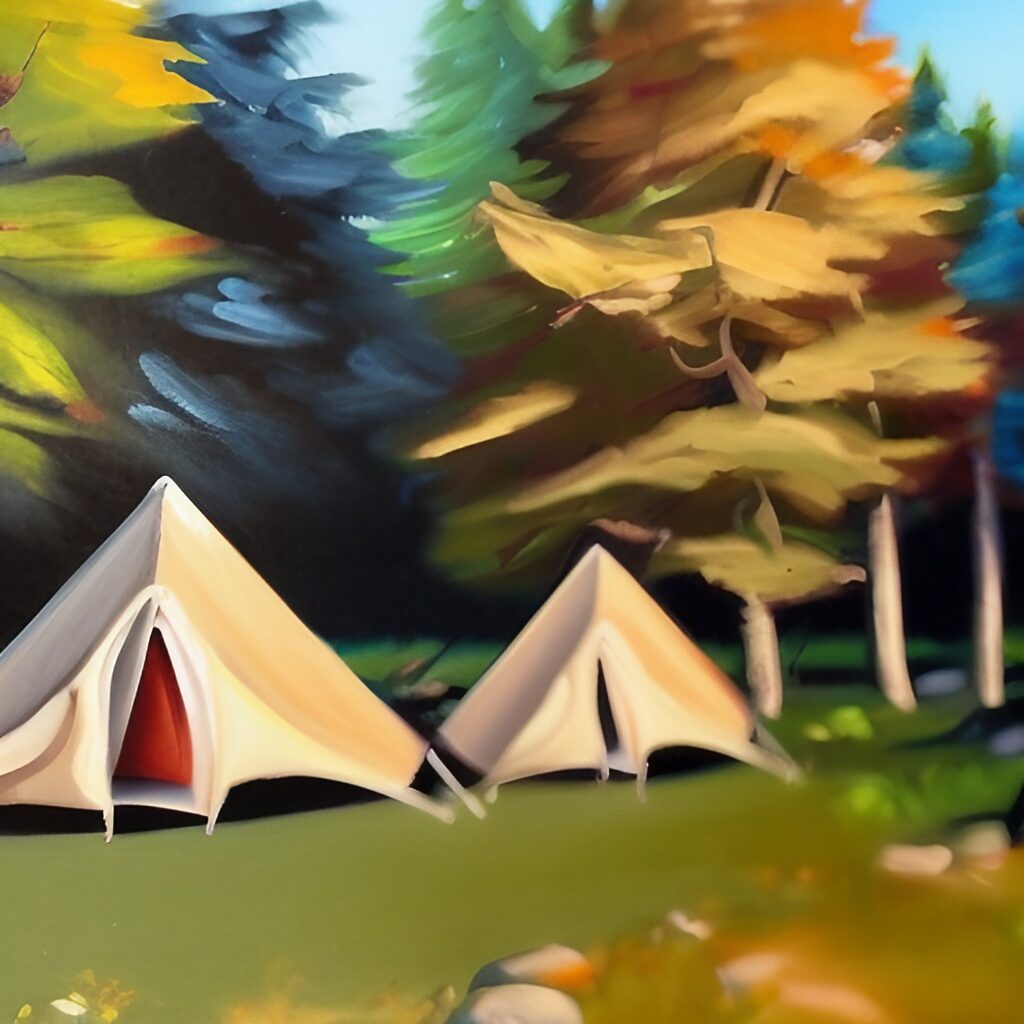
Your tent can make or break your camping experience, whether you’re spending a few days or weeks outdoors.
So it’s important to consider your options carefully when you choose a tent. Part of this process is thinking about the tent brand.
But we get it – there are many brands to familiarize yourself with. Luckily, we did all the hard work to bring you this collection of the best tent brands.
Overview – The 11 Best Tent Brands
Best Tent Brands for Ultralight Campers – Overview
- Big Agnes
- MSR
- NEMO
- Zpacks
Best Tent Brands for Backpackers – Overview
- REI Co-op
- Marmot
- The North Face
- Kelty
Best Tent Brands for Car Campers – Overview
- Kodiak Canvas
- Coleman
- CORE
- Overview – The 11 Best Tent Brands
- 1. Big Agnes – The 11 Best Tent Brands
- 2. MSR – The 11 Best Tent Brands
- 3. NEMO Equipment – The 11 Best Tent Brands
- 4. ZPacks – The 11 Best Tent Brands
- 5. REI Co-op – The 11 Best Tent Brands
- 6. Marmot – The 11 Best Tent Brands
- 7. The North Face – The 11 Best Tent Brands
- 8. Kelty – The 11 Best Tent Brands
- 9. Kodiak Canvas – The 11 Best Tent Brands
- 10. Coleman – The 11 Best Tent Brands
- 11. CORE – The 11 Best Tent Brands
- What Makes a Good Tent Brand? – The 11 Best Tent Brands
- How to Choose a Tent Brand – The 11 Best Tent Brands
- Conclusion – The 11 Best Tent Brands
- Frequently Asked Questions – The 11 Best Tent Brands
- 1. What are the Differences Between Tent Types and Brands? – FAQs
- 2. How Do I Choose the Right Size and Shape for my Tent? – FAQs
- 3. What Features Should I Look for When Selecting a Tent Brand? – FAQs
- 4. Are There Any Special Considerations When Shopping for Tents From Different Brands? – FAQs
- 5. Where Can I Find Good-Quality Tents From Reliable Brands? – FAQs
- 6. Do Any Features Make Certain Tent Brands Stand Out Among Others? – FAQs
1. Big Agnes – The 11 Best Tent Brands
Big Agnes was established in 2003, which doesn’t seem like much compared to the multi-decade histories of its competitors.
Despite this, they’ve still made an enormous splash in the camping world.
Although they offer a selection of car camping models, their true specialties are backpacking and ultralight tents.
In fact, Big Agnes is so dedicated to serving the ultralight crowd that they’re taking ultralight tents to new extremes. Their “Crazylight” lineup, including the Copper Spur HL shown in the image above, features fully-functional models (i.e: not bivys or trekking pole tents) that weigh as little as 1 pound!
But here comes the catch: you will pay a premium price for all this amazing functionality.
Additionally, their ultralight fabrics tend to be a little less durable than other brands. If you carelessly toss around one of these tents, they’re likely to rip.
For these reasons, Big Agnes probably shouldn’t be the go-to brand for a camping newbie.
Rather, these tents are for committed campers who are ready to invest in a quality product and know how to care for it.
2. MSR – The 11 Best Tent Brands
Mountain Safety Research, or MSR as they’re better known, is another brand that can be considered a one-stop-shop camping paradise.
In 51 years, they’ve grown to offer everything from cookware and camping stoves to tents and anything in between.
Notably, their backpacking tents are extremely competitive and comparable to Big Agnes.
Some of their ultralight models feature carbon pole construction and weigh in at just over a pound.
One area in which MSR excels is weather protection. Users tend to agree that MSR tents can take a beating in harsh conditions.
One way they accomplish this is through their patented coating, XTREME SHIELD™.
Originally schemed up as a way to handle the degrading of tent fabrics, it instead proved to be an ultra-durable coating that delivers reliable and consistent waterproof protection.
Additionally, MSR seam-tapes their tents using several failsafe methods.
For instance, they choose special threads that swell when wet, blocking seam holes and preventing leaks. Then they factory-seal it as an extra defense.
You’ll pay a pretty penny for all this performance for an MSR tent. This isn’t really surprising, given their crazy minimal weights and high-end technology.
But all hope is not lost; plenty of models come in at a less frightening price. Just remember that these options are heavier than their ultralight counterparts.
3. NEMO Equipment – The 11 Best Tent Brands
Despite only being around for 19 years, NEMO Equipment is, without a doubt, a reputable, big-name brand.
They’re extremely popular with the ultralight crowd; it’s common to spot NEMO tents at an Appalachian Trail campsite.
Several of their ultralight models weigh 1-2 lbs, which makes it easy to crush miles. Plus, campers praise the reliability and durability of their NEMO tents, even when bad weather strikes.
A quick browse through NEMO’s impressive lineup further indicates why they’re so popular.
It’s immediately evident that this is a forward-thinking brand. NEMO is one of the leaders in tent-making innovation. All of this knowledge is clear in their well-thought-out designs.
NEMO’s lineup features some of the lightest backpacking tents available. They’ve developed insanely thin 10D fabric, which is still durable thanks to their exclusive nylon ripstop blends.
From their Divvy stuff sacks that allow a tent to be divided between 2 hikers to their triangulated volumized corner guyouts to protect sleeping bags from condensation, NEMO accounts for every detail.
In this way, they consistently strive to raise the bar in the tent-manufacturing industry.
But as always, a massively impressive brand carries an equally massive cost.
A NEMO tent will definitely put a dent in your pocket. Consider the pricey but wildly popular Dagger. This is a worthwhile investment if you need to have the best of the best.
4. ZPacks – The 11 Best Tent Brands
If you’ve ever watched thru-hikers on YouTube, chances are you’ve encountered a ZPacks tent. The Duplex, in particular, is a highly praised model.
This niche but quickly popular brand was formed 16 years ago when ZPack’s founder was fed up with the lack of durable and ultralight tents available for his Appalachian Trail thru-hike.
Accordingly, ZPack’s specialty is ultralight shelters.
And they’re pretty serious about the “specialty” part. Unlike other ultralight brands on our list, ZPacks doesn’t produce heavier or car camping tents.
Their tents are incredibly lightweight, with the heaviest possible model weighing a mere 1.8 lbs.
This makes them a dream come true for thru-hikers and anyone looking to maximize mileage by minimizing weight.
The only downside to all this featherlightness is that ZPacks may be too specialized for most campers.
Their meager weights result in the extremely minimalist, tiny shelter. It could feel too stark for all but the most dedicated hiker.
Not to mention, they cost a pretty penny. So choose ZPacks if you’re a minimalist thru-hiker willing to pay in order to go that extra mile.
5. REI Co-op – The 11 Best Tent Brands
Yes, REI Co-op is more than just your local sports shop. It’s its own brand!
Their offerings range from lightweight backpacking models to 6-8 person car camping tents. They also stock every size and shape in between.
REI Co-op tents are known for having large amounts of living space. This is true even for their smaller, packable models like the Quarter Dome.
Speaking of cash, did we mention that these tents are quite affordable?
This makes them refreshingly accessible to those who may not be able to shell out an extra $200-300 for a tent that’s arguably of comparable quality to the premium brands.
That said, this is not the brand for ultralight models. Sure, a few 1-2P options range from 1-3 lbs. But those options are somewhat limited.
6. Marmot – The 11 Best Tent Brands
Marmot has been developing cutting-edge outdoor apparel for 40 years. While they’re primarily known for this, they’ve managed to build a sterling reputation as tent makers.
This reputation is earned for a good reason. Marmot consistently delivers high-quality, reliable tents at a reasonable price.
But given this affordability, they don’t really serve the ultralight crowd. Their lightest 1P tents weigh in at around 3 lbs.
But these tents are a stellar mix of performance and friendly price for everyone else.
And for those who take camping to the extreme, Marmot offers a line of mountaineering, 4-season tents.
At this level, the price tags are about as steep as the big brands. But this is to be expected for the quality and durability you’re getting.
7. The North Face – The 11 Best Tent Brands
The North Face is more than just a maker of cool-looking ski jackets. While they’re most known for their apparel lineup, they also have a small range of tents.
These tents range from 3P to 8P, mostly geared toward mountaineers.
They’re pretty serious about this: The North Face tents are frequently spotted at the Mount Everest base camp!
Of course, you don’t have to be scaling Everest to use one of these tents. You could be looking for a tough 4-season tent for winter camping.
And certainly, these tents deliver weather protection. It’s not uncommon to see staggering waterproof ratings of 10,000mm to block out the harshest of conditions.
Additionally, some of their mountaineering-specific tents are designed to keep you warm down to -60 degrees!
Clearly, these are remarkable pieces of technology. But it’s easy to see that these will be way too overbuilt for anyone not looking to climb a mountain or camp through blizzards.
8. Kelty – The 11 Best Tent Brands
For an affordable, middle-of-the-road tent, Kelty fits the bill.
Kelty has been making camping accessible to everyone for 60 years. One huge contributor to this accessibility are the affordable price tags on almost all of their tents.
That said, tent weight and price are often linked. So even though your bank account is getting a breather, your back might not.
Even Kelty’s smallest 1P models – for instance, the Late Start 1 (shown below) – weigh around 3-4lbs.
But if you’re operating on a strict budget and are willing to accept a few more pounds, then Kelty is arguably a wonderful choice.
Kelty tents are well-received by campers overall, despite not leading the way in technological tent-making advancements.
Accordingly, their tents are ideal for a casual camper who doesn’t see the need to overspend on an overbuilt, big-brand tent that they’ll barely use.
9. Kodiak Canvas – The 11 Best Tent Brands
If you’re looking for a canvas option, let me introduce Kodiak Canvas.
They’ve spent 10 years perfecting their tents for those looking to embrace the aesthetic and practical beauties of canvas tent camping.
Their tents are made with canvas modified by a unique technology known as Hydra-Shield. This helps boost the natural breathability of canvas fabric.
Unfortunately, the biggest issue with all canvas tents is price, and Kodiak Canvas is no different. If you’re dead set on canvas, be prepared to shell over some major cash.
But remember that it’s not all doom and gloom. Canvas tents – especially Kodiak Canvas – are known to last for years.
Campers frequently mention owning these tents for upwards of 20 to 30 years. So this may be a worthy investment for someone who wants a lifetime tent.
10. Coleman – The 11 Best Tent Brands
Of all the tent brands on our list, Coleman is one of the oldest, with its 120-year history. They’ve had a lot of time to hone their craft!
As far as their tents go, they do have a few 2, 3, and 4P models.
But their real specialty is car camping tents. This makes them ideal for parties and large gatherings. Tents like the Weathermaster 10-person tent are chock full of living space, so bring all your friends!
Now, Coleman does more than make oversized fabric caverns. They also come up with some pretty cool ideas.
Their patented hinged door is probably the most notable invention. These doors make entering and exiting hassle-free. Plus, they bring an added touch of home-like luxury to your campsite.
To further sweeten the deal, Coleman is extremely budget-friendly. Cost generally won’t be a barrier for anyone looking to try camping for the first time.
Remember that though Coleman may seem flawless, their tents aren’t the best for extreme or long-term use. Instead, they make great starter tents or are ideal for a casual camper.
11. CORE – The 11 Best Tent Brands
CORE tents are admittedly easy to mix up with Coleman. After all, both brands specialize in large car camping tents. And both brands have tents that look weirdly similar.
But in actuality, CORE can be considered a step up from Coleman. They’re slightly more expensive, but their tents have better durability and weather resistance.
Another cool CORE perk is their tendency to include screen rooms with some of their tents, as seen on the 9P Instant Cabin (shown below):
As such, this makes them awesome for summer camping and outsmarting the bugs.
A lot of CORE tents offer instant setup or pop-up tent options.
These types of tents go up in literally seconds or a few minutes. They enable you to spend more time having fun than trying to achieve a perfect pitch.
As with most budget brands, CORE tents have their weaknesses. The most obvious are their lifespan and overall durability.
But despite not being “forever tents,” they’re still a solid choice for car campers on a budget.
What Makes a Good Tent Brand? – The 11 Best Tent Brands
It can be confusing to wonder how to figure out which tent brands are superior to others. Not to mention, what criteria do you even use in this process?
Well, we’re here to walk you through the different considerations below.
Quality and Overall Construction – What Makes a Good Tent Brand?
Reputable tent brands use high-quality materials in the fabrication of their products. (If you’re curious, we go in-depth on tent materials where we answer the question, “What are tents made of?”)
The fabrics, poles, and ropes are built to last and are sturdy enough to withstand repeated use.
The strength and resilience of tent fabric are measured in a few ways and can be affected by multiple variables.
But as a base rule, if you see a large Denier number (which could look like 80D, 100D, etc.) that fabric is likely dense, and as a result, stronger.
A typical denier range for most tents falls between 75D and 150D. However, it’s important to remember that exceptions to this range can be acceptable depending on the tent’s use.
Here’s an example: some ultralight tents go as low as 10D. But since it’s an ultralight tent, you already understand you’re taking lighter fabric in exchange for lighter weight.
Conversely, if you saw a 10D fabric on a car camping tent, you’d be right to do a double-take!
Now, let’s move on to tent poles. These come in various materials (some of which have sub-classes!), but the most common are aluminum, fiberglass, and carbon fiber.
Aluminum is seen on many lightweight backpacking tents and can really take a beating. They’re strong and seriously flexible, even in colder temperatures.
Fiberglass poles are a common staple of many car camping tents. They’re heavier than aluminum poles but tend to be more unyielding to pressure.
Finally, you have carbon fiber poles, the cream of the tent pole crop. These things are wickedly tough and unbelievably light. Some of the premier tents on the market are equipped with carbon poles, and their hefty price shows it.
One thing to note: quality and price are often linked. So if you see a wildly cheap tent, proceed with caution.
Budget tents may feel great on your wallet, but they can sometimes sacrifice quality.
Longevity – What Makes a Good Tent Brand?
If you’re handing over a chunk of your hard-earned cash, your tent should be worth your investment by providing years of service.
Of course, not all tents are canvas tents, which are known for decades-long lifespans.
But a tent should provide you with at least several seasons of regular use.
One way to check on a brand’s ability to deliver longevity is to see what other campers say.
That brand is probably a solid choice if you consistently read reports about long-lived tents.
Carefully Considered Features – What Makes a Good Tent Brand?
Some tent manufacturers excel over others in thinking out every little detail of their products.
Big Agnes, for instance, offers a lineup of tents aimed specifically at backpackers. They’ve thought about all the little “extras” to make a backpacker’s experience more awesome.
These tents feature exterior loops to hang a helmet or damp clothes. Even better, they shortened the pole length so that the packed tent fits perfectly onto the handlebars.
Strategic considerations can include the placement of gear pockets. Are they far away by your feet? Or are they near your head for easy access?
Regarding the exteriors, some tent brands make their poles color-coded for stress-free pitching.
Combined all these little details combine to make your tenting experience much better.
Sustainability – What Makes a Good Tent Brand?
I know sustainable shopping is hard (read: expensive!). But if you can, it’s wise to put your money where your mouth is by seeking out environmentally-conscious brands.
A sustainable brand utilizes manufacturing methods that aren’t harmful to the Earth.
A few examples include not dumping harmful chemicals into the ground or thoughtfully sourcing their materials.
All that said, not all tent brands excel in this.
Whereas Marmot strives to be as environmentally friendly as possible, other budget brands – such as Coleman, don’t emphasize sustainability.
How to Choose a Tent Brand – The 11 Best Tent Brands
Before jumping into the nitty-gritty of evaluating a brand, we must clarify something. While a brand is important, it’s most likely not as relevant as the specific model of your tent.
Let’s say your heart is set on a larger Big Agnes tent. But you’re also going on a 6-person car camping trip.
Sure, you could stay with the Big Agnes model. But it might be smarter (and likely more financially friendly) to choose a different brand, like REI Co-Op or Coleman.
Consider Your Trip Type and Capacity Needs – How to Choose a Tent Brand
Thinking about your intended trip and capacity can immediately eliminate certain brands if you’re feeling overwhelmed.
For instance, if you’re an ultralight backpacker, say goodbye to an affordable Coleman.
Or are you planning on a large group outing? Well, you also need to cross NEMO (and its weather resistance and superior quality) off the list.
This same thought applies to capacity. If you need an enormous 10P tent, there’s no way you can justify a ZPacks 2P shelter.
Make a Budget – How to Choose a Tent Brand
Sadly, camping is not the cheapest activity. Therefore, it’s important to budget accordingly and realistically. To help you with this, here’s a breakdown of the total cost of camping with a done-for-you budget sheet!
Again, we’re using the process of elimination. If you can’t afford a premier brand from NEMO, you can remove them from your list.
But most importantly, that elimination could lead you to a more ideal brand for your needs.
In the above example, perhaps you could find a comparable and much more affordable tent from Kelty or REI Co-op.
Consider Weight – How to Choose a Tent Brand
As a loose rule, budget and weight tend to go hand-in-hand. So if you pay for an extremely expensive tent, there’s a good chance it’s probably one of the lighter-weight models. (FYI: We conducted an extensive study to find out how much do tents weigh)
You can, of course, make tradeoffs. If you’re willing to carry a few extra pounds of the tent, you can have enough money to buy that extra fluffy sleeping bag.
One last note about weight: if you want all the benefits of a canvas tent from Kodiak, remember that canvas is crazy heavy!

Conclusion – The 11 Best Tent Brands
Well, that’s a wrap for our review of the best tent brands! As you saw, there are obviously a lot of brands and tents for every camper.
And with every price point under the sun, there’s a brand out that will suit any budget without skimping on quality.
We hope this list and our mini tutorials helped you feel confident selecting your new tent!
Frequently Asked Questions – The 11 Best Tent Brands
1. What are the Differences Between Tent Types and Brands? – FAQs
Tents come in various shapes and sizes, from large family tents that can fit up to 10 people to smaller backpacking tents designed for lightweight & portability. Brands such as Coleman specialize in camping/family-style tents, while companies such as Big Agnes specialize in technical mountain/expedition models. So when selecting a brand & type, it’s important first to consider your primary needs (e.g., needing extra space for multiple people or focusing on keeping pack weight down) and then research different brands that meet those requirements.
2. How Do I Choose the Right Size and Shape for my Tent? – FAQs
Choosing the right size and shape for your tent depends largely on what activities you’ll be doing with it (e.g., solo backpacking trips or group camping) and how much comfort you’d like to have when sleeping outdoors! Consider factors such as how many people it can fit comfortably and the overall height space available when standing – this should ensure an enjoyable experience no matter where you plan to set up camp!
3. What Features Should I Look for When Selecting a Tent Brand? – FAQs
When selecting a tent brand, there are several features you’ll want to take into consideration, including waterproofing (e.g.: taped seams/coated fabrics), ventilation/airflow, quality of poles & guy lines used for stability, durability (i.e.: longevity), ease of setup/take-down, included accessories such as gear lofts/vestibules, ability to accessorize model range so everyone can customize their own set-up based upon individual preferences – all these details help guarantee satisfaction even after thousands of miles use!
4. Are There Any Special Considerations When Shopping for Tents From Different Brands? – FAQs
Yes, special considerations should always be taken into account when shopping around for new tents – things like the overall reputation manufacturer combined with price point compared against the quality of materials used, customer service options if something happens to go wrong, warranty guarantees if purchase ever fails to fall apart due unexpected circumstances; additional accessories which make life easier out trail ranging everything hidden pockets built floor up rainflys; plus amount storage available store away items overnight while also ensuring staying dry cozy – all this ensure great value money invested gets maximum return possible!
5. Where Can I Find Good-Quality Tents From Reliable Brands? – FAQs
Good quality tents from reliable brands can easily be found both online & through physical stores depending upon personal preference – some larger retailers offer a wide selection of competitively priced models ranging from full-fledged family-sized sets down to minimalist backpacking versions suited to needs every adventurer, regardless skill level budget! Additionally, investigate markets for secondhand goods those looking to find top-notch deals without sacrificing facilities could potentially strike gold from particular item stands test time!
6. Do Any Features Make Certain Tent Brands Stand Out Among Others? – FAQs
Yes, their certain features make certain tent brands stand out among others. Such unique designs offer unmatched user convenience taking into account things like easy setup times, extreme weather protection, superior ventilation systems utilizing mesh panels, and thick tarpaulins providing ultimate protection from the elements.




















